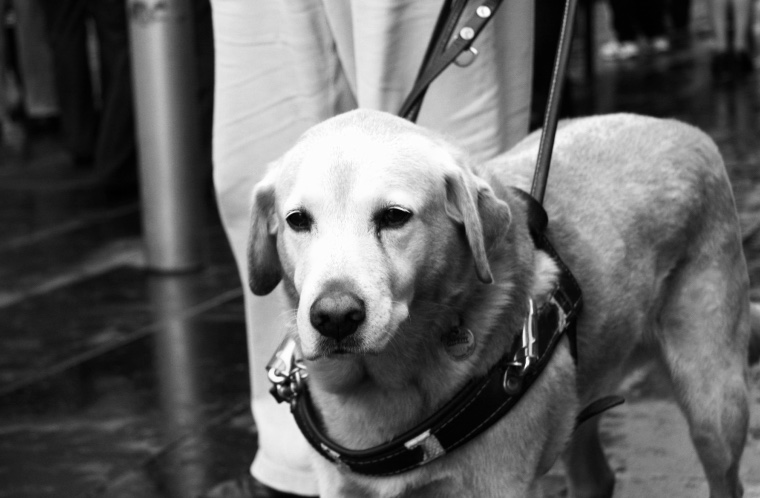For Women’s History Month, The 19th interviewed a blind Senate aide who, with her guide dog, changed Congress forever.
According to Sara Luterman, Moira Shea and her guide dog Beau made history in 1997 as the first blind woman and guide dog on the Senate floor. “In doing so,” writes Luterman, “[they] opened doors for disabled congressional staff and elected officials.”
A historic moment for blind Americans and their guide dogs
Specifically, Luterman cites a 1997 AP News article where Shea’s employer, then-Sen. Ron Wyden (D-Ore.), asked the chamber to allow Shea’s dog inside the Capitol. Shockingly, Sen. Wyden’s colleagues denied his request. In response, Wyden accused his fellow Senators of violating the Americans with Disabilities Act. Specifically, he said the denial amounted to discrimination against blind people. “A guide dog is a person’s vision,” said Sen. Wyden.
Historically, congressional aides need unanimous Senate approval before entering the chamber floor and the process is considered a formality. However, Senate rules state that any senator can block anyone who isn’t automatically authorized from entering.
Notably, the Senate sergeant at arms present at the time offered to escort Ms. Shea into the chamber without her dog. However, Ms. Shea said this arrangement was unacceptable. Not only would she not have her dog, but Senate rules also forbid bringing canes, a result of the infamous 1856 caning of Sen. Charles Sumner.
A political legacy that’s still relevant today
As a response to the affront, Sen. Wyden introduced a resolution to require disabled people to bring any necessary supportive services with them, including dogs. Incredibly, the resolution passed the next day.
Although Shea’s moment in the spotlight was admittedly brief, it was still a great victory for disabled Americans. Speaking to Luterman, Shea recalled how congressional staff asked her to sign a non-disclosure agreement regarding the whole episode. Admirably, Shea refused and continued to confront the issue until it was resolved.
Unfortunately, it is all too common for blind people to have their rights diminished, especially the right to a service dog. In one example, a UK woman was thrown out of a hotel after staff refused to recognize her legitimate guide dog.
Now retired, Shea continues to advocate for the blind community, working with Leader Dogs for the Blind. According to her, there’s still tons of progress to be made in making the world more equitable for disabled people. However, she said she looks back at her time in Congress fondly.
“I loved working on the Hill,” she said. “It was like being on a college campus. You’d meet a lot of people back then ….You were constantly learning, dealing with different issues and you just learned so much. I really, really enjoyed it.”








